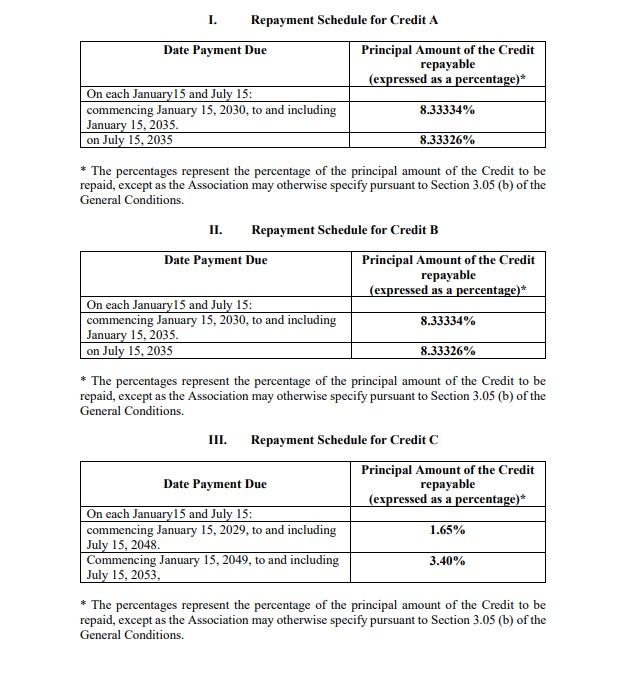The Nigerian federal government is set to provide subsidies to developers and operators of solar mini-grids in areas that are either unserved or underserved by electricity. The World Bank approved $750 million to enhance power supply via the Distributed Access through Renewable Energy Scale-up (DARES) project. Minister of Finance, Wale Edun, signed the financing agreement on March 31, 2024, alongside World Bank’s Country Director for Nigeria, Shubham Chaudhuri, on February 19, 2024. The primary objective of this loan project is to increase the frequency of power supply to households and micro, small, and medium-sized enterprises (MSMEs) by promoting private sector-led distributed renewable energy initiatives.
The loan mentioned in the document aims to support the development and operation of privately owned and operated solar hybrid mini-grids in underserved areas. This support will be provided through the carrying out of Minimum Subsidy Tender processes and the provision of Minimum Capital Cost Subsidies to selected developers and operators of isolated mini-grids, interconnected mini-grids or solar rooftop solutions in participating states.
Performance-Based Grants
Aside from providing subsidies, the federal government plans to also provide performance-based grants.
- The document noted that there will be “Provision of Performance-Based Grants to eligible mini-grid operators based on new customer connections for isolated mini grids and percentage of capital expenditures for interconnected mini grid projects.”
- The grant will also cover Standalone Solar (SAS) Systems for Households, MSMEs, and Agribusinesses. This grant will provide “Support to the expansion of SAS systems for households, MSMEs, and agribusinesses in rural areas through: 2.1. Performance Based Grants for Standalone Solar Provision of Performance Based Grants (“PBGs”) to eligible companies to rapidly deploy SAS solutions in rural and underserved areas, through supply and demand side support and based on independently verified outputs, and to support deployment of solar productive use of electricity (PUE) equipment to MSMEs, agribusinesses and commercial customers.”
- There will also be “Catalytic Grants Provision of Catalytic Grants, on a matching basis, to eligible SAS companies that target the poor, remote, or hardest to reach consumers in the country.”
About the financing
It’s crucial to note that the World Bank has approved a $750 million loan for a project divided into three segments. The segments are in the form of credits, with $350 million, $250 million, and $150 million allocated for different aspects of the project, and they are subject to currency conversions as needed.
However, the Rural Electrification Agency (REA) and the Lagos State Electricity Board (LSEB) are the primary implementers of the project, with significant support from other organizations such as the Federal Ministry of Power, the Nigerian Electricity Management Services Agency (NEMSA), the Federal Ministry of Environment, the Nigerian Electrification Regulatory Commission (NERC), and the Federal Ministry of Finance.
Additionally, it’s noteworthy that the loan features varying interest rates, with principal payments scheduled as follows:


